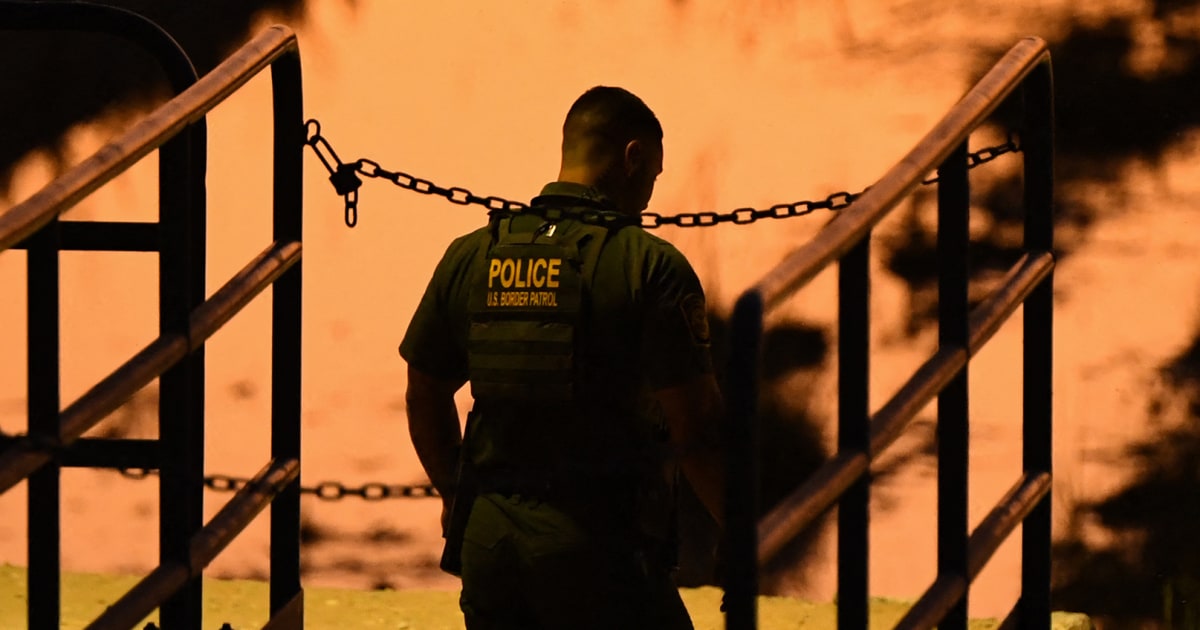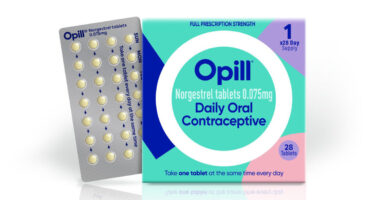
Congressional Democrats reintroduced a bill Wednesday that would prevent immigration officers from shackling pregnant and postpartum women in their custody.
Under the measure, introduced by Sen. Patty Murray, D-Wash., Rep. Sylvia Garcia, D-Texas, and about three dozen other lawmakers, any agency that falls under the Department of Homeland Security would be prohibited from using physical restraints on women in its custody who are pregnant or in labor or in postpartum recovery, with limited exceptions for “extraordinary circumstances.”
“The many stories we have seen of pregnant women being shackled, mistreated, and abused in immigration detention are heartbreaking and enraging,” Murray said in an exclusive statement to NBC News. “There is no justification for this continued cruelty against pregnant women, which is why I’m determined to win the fight for a permanent legislative fix.”
The bill would limit the circumstances under which pregnant women could be detained, require annual training for employees who come in contact with pregnant or postpartum women and set minimum standards for health care services for pregnant women.
The legislation would apply to DHS agencies including Customs and Border Protection, which takes migrants into its custody at the border, and Immigration and Customs Enforcement.
DHS did not immediately respond to a request for comment.
Murray and other lawmakers introduced a similar bill in 2018 following news reports about the mistreatment of pregnant women in the custody of immigration agencies and the Trump administration’s reversal of an ICE policy requiring officers to refrain from detaining pregnant women.
It was reintroduced in 2019 after a migrant woman in ICE custody went into premature labor and delivered a stillborn baby and again in 2021. Those proposals failed to move forward.
Under a Biden administration policy, ICE has been largely prohibited from detaining pregnant, nursing and postpartum women since 2021.
But Murray said legislation is still needed because the protections in the policy “don’t extend to pregnant women in CBP custody, and they aren’t permanent — the next administration could reverse the current policy in a heartbeat.”
“Migrants in U.S. custody should always be treated with respect and dignity — always — and we know that shackling pregnant women is inhumane and unnecessary, and can lead to miscarriage, dangerous pregnancy complications, and other mental and physical trauma,” she said.
In a post on its website, the American College of Obstetricians and Gynecologists said shackling “interferes with the ability of clinicians to safely practice medicine and may put the health of the pregnant person and fetus at risk.”
The association said it supports legislation and policies to restrict shackling of incarcerated women from pregnancy through postpartum recovery.
“If restraint is needed, it should be the least restrictive possible and should never interfere with leg movement or the pregnant person’s ability to break a fall,” the association said.
In a report last year that included interviews with two dozen Haitians who were deported from September 2021 to January 2022, Amnesty International said it found they “were routinely restrained during expulsion, including pregnant women, and a breastfeeding woman.”
The American Civil Liberties Union, which also supports the legislation, in recent years has filed complaints with DHS’ inspector general’s office, calling for it to review the treatment of pregnant people in CBP custody.
In April 2020, the ACLU of San Diego & Imperial Counties filed a complaint on behalf of a pregnant woman who gave birth and allegedly suffered mistreatment at a Border Patrol station in Chula Vista, California.
It said that after the woman, whose name was redacted from the complaint, was arrested by CBP at the border, officers allegedly subjected her to a “rough ride” to the station, during which they jerked the steering wheel and slammed on the brakes.
“Her experience only deteriorated inside the station, where she was forced to give birth while holding onto a trash can for support,” the ACLU said.
In July 2021, the DHS inspector general’s office said it found that the Border Patrol provided “adequate medical assistance to the mother and her newborn and complied with applicable policies.”
However, it found that the Border Patrol’s data on pregnant detainees was limited and that the agency did not always take prompt action to release U.S. citizen newborns, “resulting in some being held in stations for multiple days and nights.”
The inspector general’s office said it made four recommendations, all of which CBP concurred with.
Garcia said in a statement that “no mother should ever know the indignity or the pain of having her legs shackled during labor.”
“That our government would continue to detain and shackle pregnant mothers should bring great shame on us all,” she said.
Source: | This article originally belongs to Nbcnews.com










